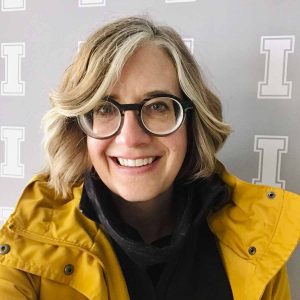What is the Produce Safety Alliance?
The Produce Safety Alliance (PSA) is a collaboration between Cornell University, FDA, and USDA to prepare produce growers, to meet the regulatory requirements included in the USDA’s Food Safety Modernization Act Produce Safety Rule.
The PSA’s overarching objective is to provide the produce industry and associated groups with training and educational opportunities related to current best practices and guidance. PSA training is the only training recognized as adequate by the FDA.
Casey Monn, FSMA, Hemp and Hops Bureau Chief, ISDA
 Casey Monn joined the Idaho State Department of Agriculture in March of 2017 bringing with him experience from multiple industries within agriculture. Casey grew up working on his family’s livestock operation and farm in California on the Central Coast, and his grandparent’s ranch in Vale, Oregon which he credits to his passion for agriculture. He has worked in the animal industry as a Quality Assurance Manager where he was responsible for managing animal health and welfare, as well as providing high-quality bio-security standards. Casey joined ISDA as an Ag. Investigator, Sr. with the plants division before joining FSMA as a Program Manager and now Bureau Chief. Casey has regulatory experience conducting inspections on: cull onions, hops, hemp, fields, feed, fertilizer, seed, nurseries, insects, produce farms, farm equipment, and has worked alongside various federal and state programs. He holds commissions and certifications with USDA, FDA, SAC, and PSA. Casey Monn graduated with a Bachelor of Science degree in Animal Science with a minor in Animal Nutrition from California State University, Fresno (Fresno State University).
Casey Monn joined the Idaho State Department of Agriculture in March of 2017 bringing with him experience from multiple industries within agriculture. Casey grew up working on his family’s livestock operation and farm in California on the Central Coast, and his grandparent’s ranch in Vale, Oregon which he credits to his passion for agriculture. He has worked in the animal industry as a Quality Assurance Manager where he was responsible for managing animal health and welfare, as well as providing high-quality bio-security standards. Casey joined ISDA as an Ag. Investigator, Sr. with the plants division before joining FSMA as a Program Manager and now Bureau Chief. Casey has regulatory experience conducting inspections on: cull onions, hops, hemp, fields, feed, fertilizer, seed, nurseries, insects, produce farms, farm equipment, and has worked alongside various federal and state programs. He holds commissions and certifications with USDA, FDA, SAC, and PSA. Casey Monn graduated with a Bachelor of Science degree in Animal Science with a minor in Animal Nutrition from California State University, Fresno (Fresno State University).
Greg Blahato, FSMA, Produce Safety, Agriculture Program Manager, ISDA
 Greg Blahato joined the Idaho State Department of Agriculture in August of 2018 as a Shipping Point / CAIP Inspector with Fresh Fruits and Vegetables. In addition to inspections with FF&V, Greg has conducted seed field inspections for the Plants Division and conducted surveys and sampling for the Invasive Species Department. Prior to starting his career with ISDA, Greg worked in retail management and served in the US Army. Greg holds commissions and certifications with FDA and PSA, and has multiple years of experience conducting regulatory inspections with ISDA.
Greg Blahato joined the Idaho State Department of Agriculture in August of 2018 as a Shipping Point / CAIP Inspector with Fresh Fruits and Vegetables. In addition to inspections with FF&V, Greg has conducted seed field inspections for the Plants Division and conducted surveys and sampling for the Invasive Species Department. Prior to starting his career with ISDA, Greg worked in retail management and served in the US Army. Greg holds commissions and certifications with FDA and PSA, and has multiple years of experience conducting regulatory inspections with ISDA.
Alyssa Smith, FSMA, Produce Safety, Agriculture Investigator Sr., ISDA
 Alyssa Smith joined the Idaho State Department of Agriculture as an Agriculture Investigator, Sr. in February 2024. With roots in the agriculture industry and active involvement in 4H and FFA, Alyssa developed a deep appreciation for the industry from an early age. Her academic pursuits led her to Oregon State University, where she earned a Bachelor’s degree in Animal Science and Agriculture Business, specializing in animal nutrition. After graduating college, she began her career with the Oregon Department of Agriculture as a Livestock Brand Inspector, where she worked extensively to assist ranchers in selling/shipping their cattle and horses. When she moved to Idaho, Alyssa sought a fulfilling career in the agricultural industry and was delighted to find exactly that with the ISDA and FSMA program.
Alyssa Smith joined the Idaho State Department of Agriculture as an Agriculture Investigator, Sr. in February 2024. With roots in the agriculture industry and active involvement in 4H and FFA, Alyssa developed a deep appreciation for the industry from an early age. Her academic pursuits led her to Oregon State University, where she earned a Bachelor’s degree in Animal Science and Agriculture Business, specializing in animal nutrition. After graduating college, she began her career with the Oregon Department of Agriculture as a Livestock Brand Inspector, where she worked extensively to assist ranchers in selling/shipping their cattle and horses. When she moved to Idaho, Alyssa sought a fulfilling career in the agricultural industry and was delighted to find exactly that with the ISDA and FSMA program.
Ariel Agenbroad, Community Food Systems & Small Farms, Area Extension Educator, U of I
 Ariel Agenbroad is an Area Extension Educator with University of Idaho focused on food systems and small farms, with an emphasis on horticultural crops. She is a certified Lead Trainer with the Produce Safety Alliance and has served as an education and outreach partner for the FSMA Produce Safety Rule with ISDA since 2016.
Ariel Agenbroad is an Area Extension Educator with University of Idaho focused on food systems and small farms, with an emphasis on horticultural crops. She is a certified Lead Trainer with the Produce Safety Alliance and has served as an education and outreach partner for the FSMA Produce Safety Rule with ISDA since 2016.
Grower Training FAQ
Fruit and vegetable growers and others interested in learning about produce safety, the Food Safety Modernization Act (FSMA) Produce Safety Rule, Good Agricultural Practices (GAPs), and co-management of natural resources and food safety. The PSA Grower Training Course is one way to satisfy the FSMA Produce Safety Rule requirement outlined in 112.22(c) that requires, ‘At least one supervisor or responsible party for your farm must have successfully completed food safety training at least equivalent to that received under standardized curriculum recognized as adequate by the Food and Drug Administration.’
The course will provide FSMA Produce Safety Rule requirements, a foundation of Good Agricultural Practices (GAPs) and co-management information, FSMA Produce Safety Rule requirements, and details on how to develop a farm food safety plan. Individuals who participate in this course are expected to gain a basic understanding of:
- Microorganisms relevant to produce safety and where they may be found on the farm
- How to identify microbial risks, practices that reduce risks, and how to begin implementing produce safety practices on the farm
- Parts of a farm food safety plan and how to begin writing one
- Requirements in the FSMA Produce Safety Rule and how to meet them.
After attending the entire course, participants will be eligible to receive a certificate from the Association of Food and Drug Officials (AFDO) that verifies they have completed the training course. To receive an AFDO certificate, a participant must be present for the entire training and submit the appropriate paperwork to their trainer at the end of the course.
The trainers will spend approximately eight to nine hours of total instruction time over the two days (four and a half hours each day), covering content contained in these seven modules:
- Introduction to Produce Safety
- Worker Health, Hygiene, and Training
- Soil Amendments
- Wildlife, Domesticated Animals, and Land Use
- Agricultural Water (Part I: Production Water; Part II: Postharvest Water)
- Postharvest Handling and Sanitation
- How to Develop a Farm Food Safety Plan
In addition to learning about produce safety best practices, key parts of the FSMA Produce Safety Rule requirements are outlined within each module. There will be time for questions and discussion, so participants should come prepared to share their experiences and produce safety questions.
If the person who completed this training in the past is no longer working for your operation, you must have their replacement trained by completing the course again.
For in-person training, $25 includes registration, lunch, refreshments, course materials, and certificates. Remote trainings are currently free! If you’re registered for a remote course, you are expected to attend. Do not register for the remote course if you are unsure you will be able to attend, as there are a limited number of spots available. Please contact us for any questions or changes.
Remote Course Technological Requirements
All PSA Grower Training Courses are being held remotely (online). Participants must be present for all modules to receive credit for participating in the course. For participants to be present during the training, participants must be able to engage through video and audio throughout the remote training. Participant’s engagement will be monitored throughout the training course to ensure the requirements have been met. Participants will require an active internet connection, access to Zoom, a camera, a microphone, and the ability to interact throughout the training. ISDA will be mailing out training manuals and other educational materials approximately two weeks before the training date. If scheduled attendees do not participate or miss their training, they will be expected to return the educational materials as soon as possible.